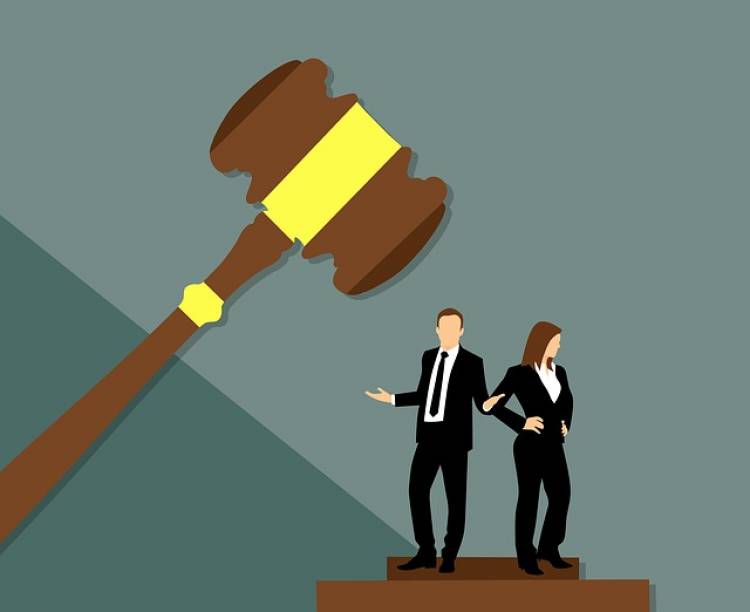Discuss the provisions relating to first and second appeal against original decrees laid down in the code of Civil Procedure, 1908
The expression “Appeal” has not been defined in the Code. The appeal is a proceeding by which the defeated party approaches a higher authority or court to have the decision of lower authority or court reversed.

Normally, one cannot except the final decision in the case. It is natural that any error of law or procedure might have been made while making the judgment.
The expression “Appeal” has not been defined in the Code. The appeal is a proceeding by which the defeated party approaches a higher authority or court to have the decision of lower authority or court reversed.
Essentials of Appeal
Every Appeal has three basic elements
(i) A decision of a Court
(ii) A person who is not satisfied with the decision
(iii) A reviewing body ready and willing to entertain an appeal.
Provisions have been made about appeal under Section 96 to 102 and order 41 of CPC.
Section 96 Appeal from original decree.
(1) Save where otherwise expressly provided in the body AP of this Code or by any other law for the time being in force, an appeal shall lie from every decree passed by any Court exercising original jurisdiction to the Court authorized to hear appeals from the decisions of such Court.
(2) An appeal may lie from an original decree passed ex parse.
(3) No appeal shall lie from a decree passed by the Court with the consent of parties.
Section 97 Appeal from final decree where no appeal from preliminary decree
Where any party aggrieved by a preliminary decree passed after the commencement of this Code does not appeal from such decree, he shall be precluded from disputing its correctness in any appeal which may be preferred from the final decree.
Section 98 Decision where appeal heard by two or more Judges.
(1) Where an appeal is heard by a Bench of two or more Judges, the appeal shall be decided in accordance with the opinion of such Judges or of the majority (if any) of such Judges.
(2) Where there is no such majority which concurs in a judgment varying or reversing the decree appealed from, such decree shall be confirmed:
Provided that where the Bench hearing the appeal is composed of two Judges belonging to a Court consisting of more than two Judges, and the Judges composing the Bench differ in opinion on a point of law, they may state the point of law upon which they differ and the appeal shall then be heard upon that point only by one or more of the other Judges, and such point shall be decided according to the opinion of the majority (if any) of the Judges who have heard the appeal, including those who first heard it.
Section 99 No decree to be reversed or modified for error or irregularity not affecting merit or jurisdiction.
No decree shall be reversed or substantially varied, nor shall any case be remanded, in appeal on account of any misjoinder of parties or causes of action or any error, defect or irregularity in any proceedings in the suit not affecting the merits of the case or the jurisdiction of the Court.
Section 100 Second appeal
(1) Save where otherwise expressly provided in the body of this Code or by any other law for the time being in force, an appeal shall lie to the High Court from every decree passed in appeal by any Court subordinate to a High Court, on any of the following grounds, namely:-
(a) The decision being contrary to law or to some usage having the force of law;
(b) The decision having failed to determine some material issue of law or usage having the force of law;
(c) a substantial error or defect in the procedure provided by this Code or by any other law for the time being in force, which may possibly have produced error or defect in the decision of the case upon the merits.
(2) An appeal may lie under this section from an appellate decree passed ex parse.
Section 101.Second appeal on no other grounds.-
No second appeal shall lie except on the grounds mentioned in section 100.
Section 102.No second appeal in certain suits.-
No second appeal shall lie in any suit of the nature cognizable by Courts of Small Causes when the amount or value of the subject-matter of the original suit does not exceed five hundred rupees.
Powers of Appellate Court
Under Sections 107 and 108, the powers of the appellate court have been mentioned. According to this, the powers of the appellate court will be as follows:
(a) The power to hear and dispose of the case finally
(b) To send or remand the case to the lower court for rehearing
(c) To refer the case to the lower court, after re-framing the disputed issues for retrial
(d) For taking additional evidence.












